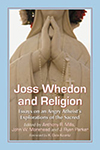- Author(s): Joseph P. Laycock
- When: 2015-11
- Where: Journal of Religion and Popular Culture
This article uses the television series True Detective as a case study to examine an ongoing media cycle in which moral panics are inspired by popular culture and vice versa. In an interview about True Detective, writer Nic Pizzolatto hinted that a murderous cult portrayed in the show was based on media reports of an actual satanic cult. This detail resulted in a wave of sensationalistic online articles that sought to channel True Detective’s popularity by speculating on the reality of criminal satanic cults. Not only do fictional media act as a plausibility structure that supports belief in criminal cults, but the reciprocal relationship between fictional stories and actual claims creates a hegemonic discourse in which claims about evil conspiracies and the religious other can be promoted surreptitiously. This arrangement serves to mask the power behind claims of evil conspiracies and raises ethical questions about depicting such conspiracies in fictional media.









